Toward A New Aristocracy
It is easy to show by a gedanken policy test¹ that, everything else held perfectly equal, a society ruled by its best – by its aristoi – will prevail over a society otherwise exactly and completely similar that is ruled by any lesser sort of men. Ceteris paribus, the best are bound to outperform everyone else at governing.
Aristocracy then, of one sort or another, is the strange attractor to which all societies tend, that are not as tending elsewhere therefore doomed. Aristocracy is the default mode of human social organization, the most basic and most natural. Other sorts of rule then are more or less unnatural; which is to say, ill fitted to reality, and so unlikely to succeed.
The West has rejected aristocracy since at least 1789. Ostensibly – albeit never, quite, in fact – it has since that time pledged itself more and more completely to egality – i.e., to a fiction; for, being different from each other, men cannot be equal. Unless it changes course, then, and turns again to embrace aristocracy, the West is sooner or later doomed. That doom would effect its change of course, toward some aristocrats or other – perhaps not those of its own ilk.

Regicide during the French Revolution
The loom of that doom grows daily more and more oppressive. The West is decohering. It is at warm civil war regarding First Things, ergo all subsidiary things, down to the most picayune aspects of daily interaction (viz., ‘microaggressions’). So is the West descending into chaos. The absurd logical terminus ad quem of the identity politics into which the Left has lately ushered us is the Hobbesian war of all against all – raw subhuman asocial nature, red in tooth and claw.
The only way to rescue the West, then, is for the West to generate aristoi from within itself, and elevate them to rule.
How?
The neo-Confucian ‘meritocracy’ of the Modern West is a nobly motivated attempt to discover and elevate the brightest students – as distinct from the best men, and taking ‘best students’ as the next thing to ‘best men’ – to positions of power, regardless of their native station or antecedents. But because it puts the sortition of men into the hands of an academic and bureaucratic priesthood sequestered in Ivory Towers who despite their tremendous influence are destined never to wield actual political power, and who therefore have generally but little experience of how things actually work out in practice, it has over the decades operated on criteria of excellence that are more and more at odds with true virtue.
Political correctness of some sort is always with us, to be sure, for wherever there is society, there is an orthodoxy, and with it something like an Inquisition (except in rather small groups, you can’t get orthodoxy without an Inquisition). Political correctness is the outward and visible signal of an inward moral unanimity, and so is the forecondition of law, custom, and propriety in comportment. Societies coordinate their acts, and so cohere, to the extent that they are unanimous.
But not all orthodoxies are equal. Problems arise when an orthodoxy ill fits reality. And thanks to the attenuated feedback from reality to our intellectuals that our tremendous recent prosperity has so far enabled, that is what has happened to our orthodoxy. The priesthood has run off the rails. Indeed, the priests generally insist nowadays that there are, and ought to be, no rails, other than those they themselves have spun out of thin air.
The result is that one sine qua non of latter day success in ‘meritocratic’ sortition is the public offer of a pinch or two of incense on the altars of several incoherent doctrines: that there is no such thing as sex, and that sex is crucial; that there is no such thing as race, and that race is crucial; that there is no such thing as justice (but only power), and that justice is crucial; that there is no such thing as marriage, and that marriage is crucial; that there is no such thing as truth, but only tendentious texts, and that this truth about truth is crucial … and so forth.
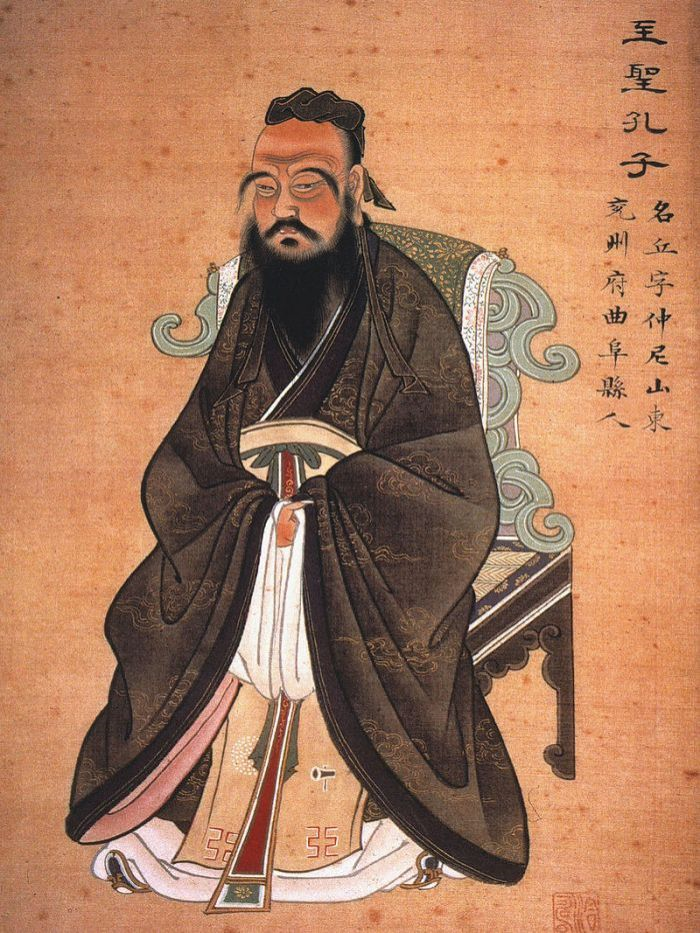
Confucius
Here’s the problem: neo-Confucian sortition can work at most only to discover men who are excellent bureaucrats. It cannot work to discover and promote men who are virtuous leaders or governors (or even intellectuals, for that matter; for, utile intellectuals must be able to see right through the dogmatic categorical systems of the bureaucrats, to analyze them, and so to explain them, or critique them, or then to reform them)(in like wise, a clown who buys the Party Line is not funny). And this is why the Chinese never (until recently, if even now they do) employed Confucian sortition to determine degrees of nobility, as we have lately done. They used it, rather, only to discover who should get the cushy bureaucratic jobs in service of the noble houses.
The nobility of China, as of every land, were discovered in the crucible of war. They were supremely excellent and canny warriors – warlords, their familiars, and their retinues and vassals, together with their followers of the same ilk. Noble houses waned as they ceased themselves to wage war, and spent their vim instead on politics, intrigue, religion, business, arts, study, or vice.
The Western military still raises up excellent leaders of men, to be sure. Yet since that epochal year of 1789, it has been more and more dominated by the same sort of bureaucracy that has assumed control of every other institution. Great military leaders – dukes, as they were once called – there still certainly are. But they live under the thumb of bureaucrats, and work for bureaucracies. Like all the other institutions of the West, then, the military has been more and more subject to the vapors that swirl about the tops of the Ivory Towers. It has been largely converted from its original purposes as an agency of social defense and propagation to those of an agency of social reform.
And since most innovations fail, this means that – like the other institutions also now dedicated firstly to social reform – the military has lately become an agency of social vitiation. It has started to try to ruin the social order it inherited – and that gives it suck – as much as to defend it.
Business, too, reliably raises up great leaders, by the thousand, from every generation. But business, too, has long been famously diverted from its original purposes by metastasizing bureaucracy, and by the proliferation of rules and regulations and penalties that force businessmen of all sorts to become expert at mere stupid purblind documentary compliance if they want to survive so as to do any good at all to their customers, that is worth remuneration.
Similar considerations pertain to science and engineering, to the professions, and to the churches. To the arts, the monastic institutions, and the academy, too, though none of them were oft engaged in the execution of social direction.

Prince Charles of Wales
Bureaucracy is a machine, a tool, a technique. It cannot do anything at all except under the direction of some true authority. To put excellent men under the control of excellent bureaucrats is therefore to put the cart before the horse. Put the bureaucrats in the service of the excellent men, that’s the ticket.
How may we find the noble men?
Might we not perhaps turn to the great grandsons of the old nobility? Are their houses not tested by generations of conflict, and have they not endured?
They have, indeed. But, they are too enervated by the terrific prosperity bestowed to them by virtue of the excellence in policy and war of their forefathers. The biological heirs of the old nobility seem mostly to be soft men, wastrels, playboys, incompetents, dim bulbs, or fools – fools who, too often, reject the traditions that ennobled their lines, and that devolved to them their fortunes. They bear in their bodies perhaps the raw genetic rudiments of virtue, fallen into lassitude and so to epigenetic desuetude. But that seems to be all. They seem no more fit to aristocratic office than anyone else.
But even if the great grandsons of the old nobility were all throughly noble, it wouldn’t matter. The old noble houses are too discredited by what has so far transpired in the confection of modernity, and are no longer apprehended as anywise truly authoritative by their very nature. The reason is not far to seek: the noble houses are not seen as truly virtuous, truly excellent, truly noble.
There are exceptions to this rule, of course. There is still some lingering mana that in the hearts of hoi polloi attaches to the old houses. Noteworthy in this respect is the global fascination with the doings of the House of Windsor. Not a few of their scions – to wit, Lord Northbourne and his sort, or Prince Hans-Adam II of Liechtenstein, aye and even the vacillatory Prince Charles, in some ways – are tough minded, intelligent men, all too painfully aware of the glory of their national and familiar patrimony, and of its dwindlement, and ready to prophesy the cost of that ignobling of social life, which has robbed it of much of its ancient meaning and beauty, by debasing it to the lowest common denominator demanded by efficient bureaucratic administration.
How then are we to find and elect a fit cadre of new aristocrats? Or, perhaps more to the point, and before we set out to find them, elect them, and seal them to their rightful offices: how are we to generate them from among our people? How, that is, ought the lives of our people to be ordered in such a way that, just by living, they reliably generate truly noble men?

Prince Hans-Adam II of Liechtenstein
Clearly this is not the sort of thing that in our present circumstances can be administered from the top down, from the commanding heights of society; for, those heights are already entirely occupied by highly trained and expert bureaucrats, who – not vindictively (for the most part) but (for the most part) with the best of intentions – order everything under the span of their control according to their own bureaucratic lights.
Any program of generating excellence designed by bureaucrats is going to end up generating only excellent bureaucrats.
If we are to generate nobility then, we shall have to do it from the ground up. To put that another way: we shall have to do it ourselves; and what is more, we shall have to do it to ourselves. We shall each have to become as noble as we can.
And that should do the trick. Given a few thousand men trying their best to live noble, virtuous lives, the problem of generating noble men should neatly solve itself.
This seems clear enough, on the supply side. But what about the demand side? Granted that a few thousand men seeking nobility are likely to find it, how can we find them and elevate them to leadership?
Here, too, there is nothing we need to do other than to seek excellence in ourselves, and for ourselves. There is no need to think up some formal political procedure that will find noble men and name them as such. For, as society is naturally bent by the realities of game theory and of economics toward rule by the best, so likewise are men naturally inclined to understand who among them is best, and then to follow them.
The machinery of aristocracy is wired into us. To ensure that we are ruled by the best among us, there is then no need to do anything, other than what seems natural to us in respect to our fellows. This, especially, when times are tough. People admire leaders, and want to follow them, in any circumstances. This is even more true of natural leaders than it is of anyone else. No one is immune to that call.
This is why people are fans of athletes, entertainers, politicians, authors, and thinkers. It is not just that they are pleased by their idols, but that they admire them, want to be like them, and want to do what they do – want to follow them. They want to order their lives in the way that the men they admire have ordered their own.
This phenomenon is evident enough when the living is easy. But when things get really dangerous, it is remarkable to see how natural leaders instantly emerge from the pack, and how everyone quickly follows their lead.
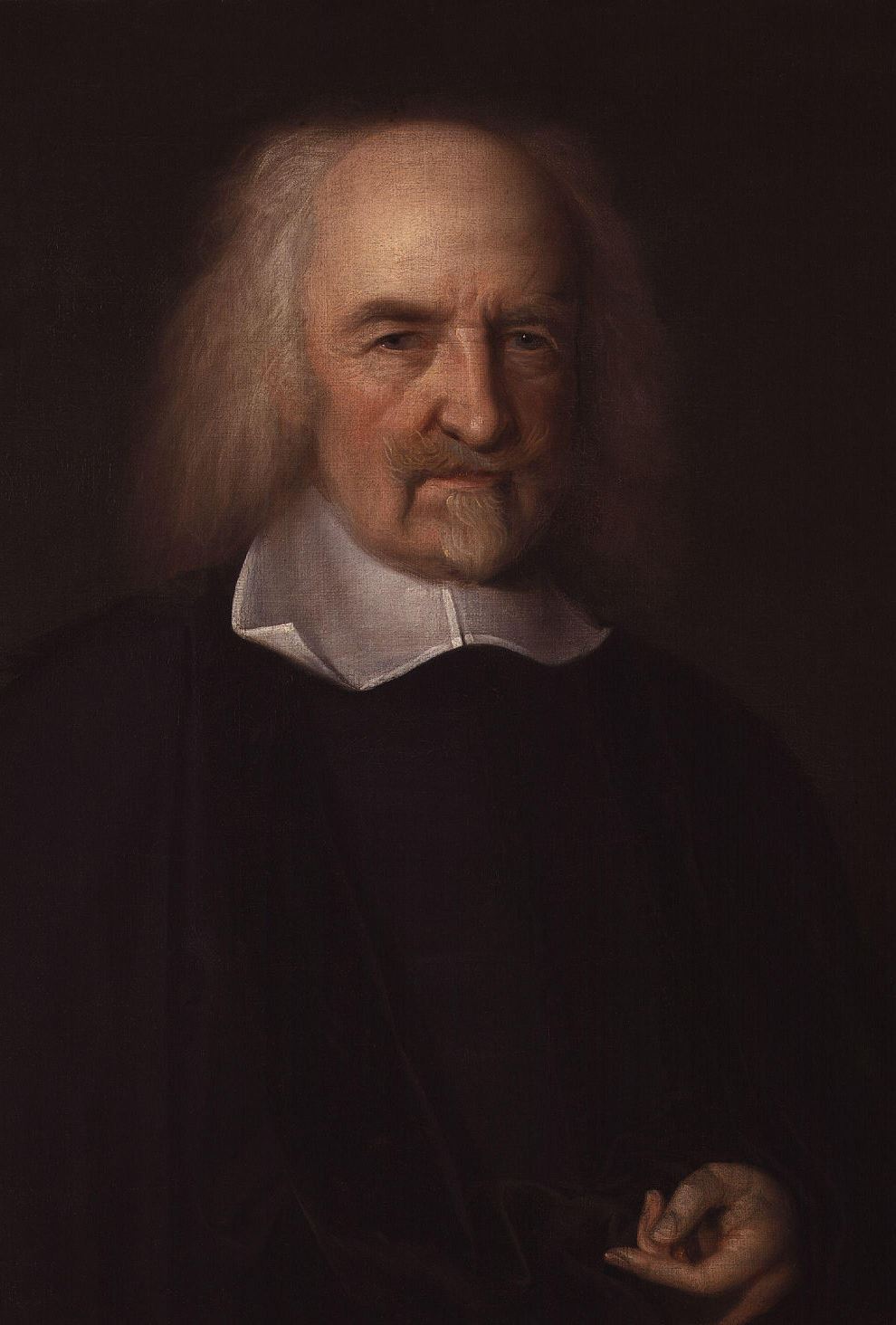
Thomas Hobbes
No paperwork or legal formalities are involved in that organic election to leadership. The lawyers ain’t in it; and when things are truly dire, then are they most abhorred.
In my career as a professional outdoorsman, I have seen this dynamic at work many times. Through dire and terrifying adventures, I have eagerly followed men whom I knew to be excellent, and who clearly understood what was happening, and what we should all do; and I have myself been thus followed (I was fortunate in that I worked with a platoon of leaders; all of us would have followed any of us, and did).
Do not ask me how, when I found that, lo, I was the leader of the crew, and of the whole company, I knew the right thing to do, who should do it, and how. I just did. It was as plain to me as my hand. Do not ask me how the men (aye, and of course the women, too) who followed my lead knew that I knew what I was doing, and what they should be doing. They just did. So they followed me, instantly and without quibble or doubt.
There is a certain joy in that sort of following. I have felt it; I have made others feel it. Not, I emphasize, that I know quite how, even though I know that I could do it again, at will; it is in just the same way that I know I could again split the wood with the axe, even though I know not how I do this.
People are built to notice and understand these things.
Men notice excellent men, admire them, and want to follow and imitate them.
This is the only thing that is needed in order to discover and elevate a new aristocracy.
To admire a man then is to want to be like him. More, it is to want to be with him. It is to want to be his ally, his vassal, a known member of his company, of his team. To be counted by a noble man as his trusted companion and shield mate is to feel oneself thereby ennobled. More: it is to be ennobled in plain fact. The lustre of a noble man’s glory rubs off on those who attach themselves to him. Especially is this so, should he recognize and validate that attachment.
This is why great leaders in their speeches to great assemblies generally take a moment or two to notice a few of their more prominent vassals by name, to thank them, and to praise them.
This then is what it means to follow a man; to have such followers is what it means to be a leader. The noble man is a model for those who know him. As they imitate him, so his peculiar nobility propagates outward, forms and ennobles the whole society.
The fealty that the noble man earns must be voluntary; it may not be asked for, but must be freely volunteered to a man who does not need it, and being in no phenomenal state of deprivation, does not want it, has not asked for it, and is therefore not maneuvering to get it; who is sufficient to himself, as needs may be.
Cincinnatus is the archetype of the fit leader. He hates the very idea of being called away from his own fields of good work that is apt to his hand. Noli me tangere; such is what any rightful bishop must say, upon learning that he has been vouchsafed as fit for episcopacy.
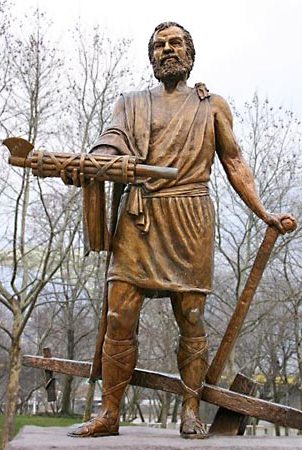
Lucius Quinctius Cincinnatus
A man who craves the approval of others, per contra, is ever worried about the fact that he does not have it, or might lose it; and this bewrays his knowledge of his own weakness, his ignobility, his unworthiness vis-à-vis his fellows. And his conviction of that his own unworthiness will be somehow apparent to his fellows. It will make him tentative, shifty, oleaginous, suspicious, double, and so even less admirable in their eyes than he might have been, had he been nonchalant about the question of his status, and comfortable in and with his humility. Even less admirable will he be, should he then scramble to compensate for his characteristic unworthiness by maneuvering for signs of social acceptance, or by empty virtue signalling.
Virtue signalling is a hustle. It is a show of ersatz virtue. And everyone knows this.
Everyone despises a hustler. Everyone deplores a fake.
Everyone admires honesty. Everyone admires truth, goodness, beauty, virtue. To earn admiration truly, one must be really true, good, beautiful, fair, just, righteous, courageous, skilled, dangerous, far-sighted, thoughtful, magnanimous, charitable, understanding, sagacious: virtuous.
It is clear then, what we must ourselves do in order to establish a society that naturally generates leaders: we must become ourselves virtuous, along every dimension of virtue. This we must all do to our utmost. And, fortunately, it is no more than what we must in any case do, in order to lead lives that are any good, regardless of our environing circumstances.
We must: Pursue Virtue; Become Noble; Become Admirable; Earn Fealty; Exert Authority; so, Wield Power.
The first three items on this list have already been covered. What then of fealty?
A man’s first most apt circle of fealty is that of his own children. A man whom his children admire and love on into their maturity is a man indeed. Most men who have tried their best will have succeeded in this, and will enjoy the fealty of their offspring. Most men who have tried their best – who, being of that sort who do thus try, will therefore know that they have not achieved it – will not expect that fealty. They will then often fail to notice its presence, and so suffer its apparent absence. It is there for them, nonetheless; and at the crisis, when it comes, that fealty will likely make itself unmistakably known.

Father and Mother at “Manif pour Tout” rally.
Virtue will out.
A man’s second most apt circle of fealty is that of his brothers and sisters, and his parents. His third, his wife. His fourth, his brothers in arms, his old friends who know his strengths and his foolishnesses best, his männerbund.
These are all clustered quite close together. They are as it were the inmost sublayers of the most intimate layers of a man’s influence upon society.
It is difficult to win the fealty of all portions of that innermost circle of social influence. A man may earn the fealty of his children, his parents and siblings, and his männerbund, yet fail to earn the fealty of his wife. Indeed, this is not uncommon. The fealty of the wife is the most difficult of all to a man, for she has the most stake in him. Yet paradoxically, a wife who feels no particular admiration for her husband can be his fiercest, most persistent advocate and apologist (not to him, of course; but, to all others). She of all people can see through him best, and is most aware of his most private foibles; she of all people will (if she herself is any good at all) understand also his strengths, defend his honor, and preach it, most fervently of all.
Sometimes. Not often enough, alas, in these latter days, suffused as they are with feminist resentment.
The familiar portions of that innermost circle bestow upon a man the honor of serving as their patriarch. The fraternal portions of that innermost circle bestow upon him the honor of serving as a knight of their company, and perhaps a captain.
The first most important thing is to earn the fealty of that first closest layer, or at least most of it. If you’ve done that, you’ve done the main thing in worldly life, and the main thing you can do for your acquaintance, for man, and so for your West. If you’ve done that much, you have done the greater part of what any man can do. You then have a pretty good shot at earning the fealty of outer circles of social influence: of becoming a lord, in addition to a patriarch and a knight.
Note then also that no man may become noble who has never pledged his own fealty to some man whom he admires. There is a sort of Apostolic Succession of nobility. To attain mastery, a man must first apprentice to study with a master, whom he reckons as his own master, his personal superior and director. As no knight was not first a page, and then an esquire, so no man is made captain (of any cohort whatever) who has not been first a lieutenant.
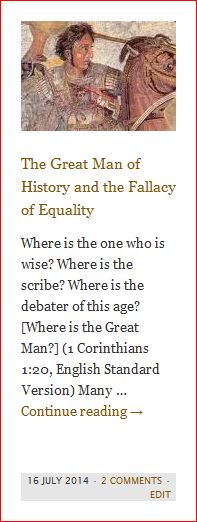 In the limit, every truly noble man must somehow have pledged his ultimate fealty to the Ultimate who transcends all others, and reigns over them. Only in virtue of that ultimate commitment, which utterly demeans death, might a man treat his own life as mattering but little in the scales of cosmic justice, and so determine to wager it in the service thereof. The most lethal men and the most formidable are careless of their own lives – not that they are imprudent or foolish, but that they do not hesitate to lay everything on the line for what is right, so that they are, not fearless, rash or stupid, but relentless, iron, and implacable.
In the limit, every truly noble man must somehow have pledged his ultimate fealty to the Ultimate who transcends all others, and reigns over them. Only in virtue of that ultimate commitment, which utterly demeans death, might a man treat his own life as mattering but little in the scales of cosmic justice, and so determine to wager it in the service thereof. The most lethal men and the most formidable are careless of their own lives – not that they are imprudent or foolish, but that they do not hesitate to lay everything on the line for what is right, so that they are, not fearless, rash or stupid, but relentless, iron, and implacable.
Only as relentless and implacable in the pursuit of justice might a man be truly noble.
To be base, and corrupt, is to be comfortable with injustice in oneself – and by immediate extension, in one’s dealings with others. So base men are hated by their fellows, and soon destroyed.
A noble man is not comfortable with his own injustice. Indeed, because his ultimate commitment is to the Ultimate, he is never comfortable with anything less than perfection.
Nor is that all. A pledge of fealty by even the meanest man to some master or lord is implicitly a pledge to the entire hierarchy supersidiary to him, and thus ultimately to the Most High. If you can’t believe that your liege lord is in fact virtuous in the eye of Heaven, even given his admitted foibles (at which, if he is any good at all, he pokes good fun), then you can’t be honestly his man. If you are his honest man, then are you ipso facto committed to his commitments – not legally, perhaps, but (more importantly, more really) morally. If his commitments were wrong, so then would he be wrong, and you could then follow him only wrongly, ergo poorly. So likewise with his commitments to other higher men, and theirs to yet other nobler men, right on up the line to the monarch, and beyond him to the very King of Heaven. If you are his honest man then, also, you are likewise committed to his philosophical and religious commitments, and therefore his moral and practical commitments (in virtue of which, if he’s any good, is he therefore committed to his lords).
Personal fealty depends upon moral agreement. Agree to the justice of your lord, and ipso facto you agree to his lordship. Agree to his justice, and implicitly you agree to do your best to conform your own acts thereto.
A key component of becoming noble, then, and so of earning the fealty of others so as to exert over them authoritative leadership, is first to pledge fealty oneself to some other man even nobler. A key component of nobility, i.e., is … humility.
Who cannot pledge himself truly to a fit captain is not fit to be a captain.
So much for earning fealty, then. What of the last items on the list? What of exerting authority and wielding power, so as to guide and govern man in the way that he should go?
With fealty comes authority. No true fealty exists toward a ruler who is not really noble. Loyalty there may indeed be toward such a one, to be sure, but not fealty. Loyalty is merely legal; the two terms derive from the same root. A man may be loyal to his wife, e.g., and faithful to her out of an acute sense of his duty under the law (of man, of Nature, of Heaven), who nevertheless holds her in moral or aesthetic or sexual contempt. Loyalty is not nothing, certainly; but it is not fealty. Fealty per contra is faithfulness itself, subsisting, living, ordering and dispositive of our acts, in its own right and regardless of law. It is a species of love.
My fealty to my wife is my love for her; my loyalty to my wife, while subsumed in that fealty, is my duty to her.

Thomas Carlyle
Fealty then as such confers authority. In virtue of my fealty to my wife, e.g., I take her judgements as authoritative, and so suasive. Not dispositive, certes, for my fealty subsists in the first place only insofar as I am myself an independent agent, who can as independent therefore pledge it. I must myself judge the judgements of my wife, or of my captain, or of his duke, and pledge myself to them – or not – or else their judgements are nothing more than the blowing of the wind across insentient plains. So I take up their judgements as worthy of my own consideration, and of my own judgement; insofarforth, I take them as authoritative, and suasive. If my wife says that the movie sucked, I am pretty much bound to take her opinion seriously, whether or not I end by agreement with her. So then for any of her judgements.
As it is in me respecting my wife, so is it in her respecting me.
And the same goes, as between a captain and his lieutenants. A captain who scorns the judgements of his lieutenants, or a fortiori of their sergeants, is a fool; and is doomed, to fail.
Fealty then confers authority ipso facto. Nothing more is needed to endow a man with authority, than is given to him in the fealty of those who follow him as their leader.
And authority just is is social power. It is the real McCoy. It is not coerced, or therefore hedged about and protected and enforced by violence, or by the threat thereof. It is free, and clear, and unobstructed, in rather the way that any plain fact is unobstructed. There is that stone over there. Must it be enforced upon you, as a living reality, to which you must somehow or other make an accomodation? No. It’s just there, and you deal with it as a fact. So likewise with true authority. Must it be enforced upon you with laws and policemen, with ukases and forbidding ostracisms? No; you reckon it for what it is, and set yourself up accordingly.
None of this is complicated. It is the basic stuff of social life, running along beneath all the formalities.
So, nothing special need be done in order to set up social life in such a way that it reliably pours forth noble men: aristoi. All that needs to happen is this:
Pursue Virtue; Become Noble; Become Admirable; Earn Fealty; Exert Authority; so, Wield Power.
Go ahead, then. What’s stopping you?

Kristor J. Lawson
– Kristor J. Lawson has worked as a countertenor, whitewater boatman, woodcutter, hermit, and for the last 35 years as a financial advisor. He is married, a father of three and grandfather of two. He began writing for the public at View from the Right in 2009, and at his present blog, The Orthosphere, in 2012. Kristor Lawson‘s last contribution to the Sydney Traditionalist Forum was to its 2016 Symposium (“Transcendence: Community, Nation, Civilisation; Religious Aspects of the Present Turmoil”) titled “The Social Contract with the Logos.”
Endnotes:
- Kristor J. Lawson, “Apologetical Weapons: the Gedanken Policy Test” Orthosphere (blog) (21 March 2012) <orthosphere.wordpress.com> (accessed 23 December 2017).
Citation Style:
This article is to be cited according to the following convention:
Kristor J. Lawson, “Towards a New Aristocracy” SydneyTrads – Weblog of the Sydney Traditionalist Forum (24 December 2017) <sydneytrads.com/2017/12/24/symposium-ii-kristor-j-lawson> (accessed [date]).


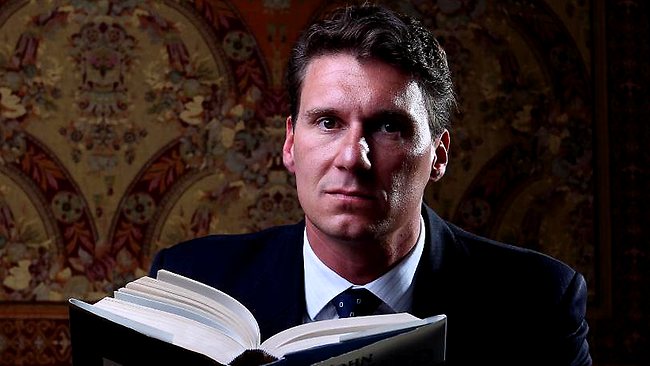
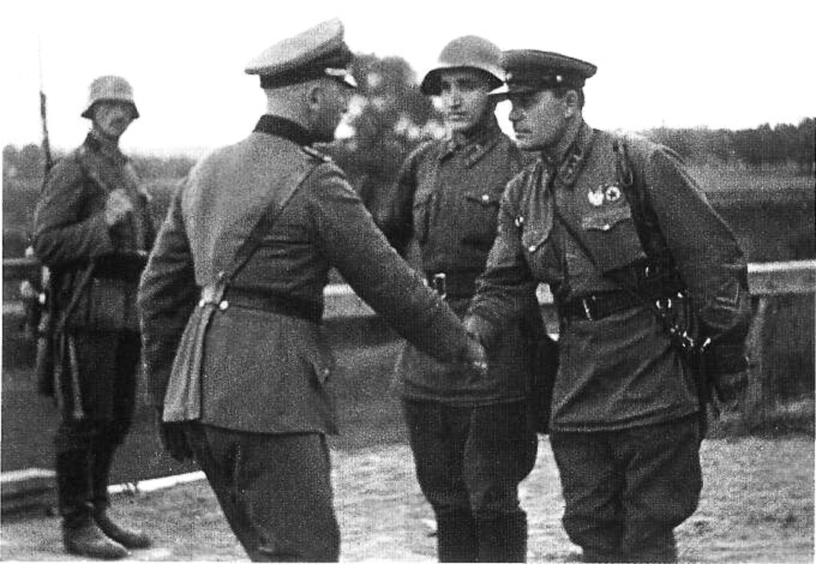

Leave a comment